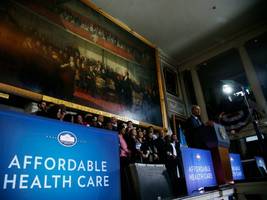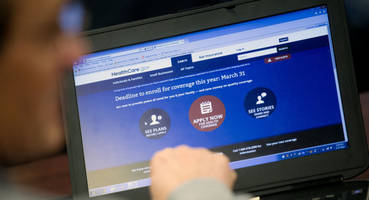Insure.com’s annual Mother’s Day Index finds that Mom’s value is up 5 percent over last year, and an accompanying survey finds she might prefer less traditional gifts.
Foster City, CA (PRWEB) May 05, 2014
Mothers across the nation have something to cheer about: They just got more expensive to replace.
After two consecutive years of decline, Mom’s value increased 5 percent this year to $62,985, according to Insure.com’s annual Mother’s Day Index. The Mother’s Day Index utilizes wage data from the Bureau of Labor Statistics to put a price on common household duties.
“Wages for typical Mom tasks like cleaning, cooking and keeping kids healthy and entertained took a big hit during the recession,” said Penny Gusner, consumer analyst for Insure.com. “This year nearly all of them increased.” (See the full task chart and associated wages.)
The index bottomed out at $59,862 in 2013.
A mother may not get a paycheck or even any recognition for the things she does around the house, Gusner said, but replacing that labor would hit any family that doesn’t have sufficient life insurance.
“If you have more than one child to care for, a special needs child, or Mom working outside the home, then having life insurance on Mom is even more important,” Gusner said.
While the family won’t be handing Mom a paycheck, they probably will be handing her a gift or two – and mothers have some surprising preferences on that, an Insure.com survey shows.
Insure.com asked 1,001 mothers with children living at home to choose three ideal gifts from a list of 16. Classics such as flowers and chocolates didn’t even crack the top five.
Moms’ favorite gifts included:· A day at the spa: 38 percent
· A weekend getaway with the whole family: 32 percent
· Gift card: 25 percent
· Dinner at your town’s best restaurant: 25 percent
· A weekend getaway with husband: 25 percent
But hold off on that new blender. The surveyed mothers’ least favorite gifts were:
· Room remodel: 9 percent
· Electronics: 7 percent
· Household appliances: 5 percent
Children don’t need to crack open their piggybanks, the survey found. A majority of mothers, 70 percent, said they preferred homemade gifts from their kids – and 17 percent said they don’t need a gift at all.
Mothers asked about their all-time favorite gifts from kids named:
· A card: 25 percent
· Artwork: 23 percent
· Breakfast in bed: 13 percent
· A homemade coupon: 8 percent
· A clean room: 7 percent
See the full article at http://www.insure.com/articles/lifeinsurance/the-mothers-day-index.html.
Methodology
“Mom’s value” is based on occupational wages from the Bureau of Labor Statistics and does not include a salary from work outside the home. It is calculated from a list of common household tasks.
For mothers’ gift choices and ways to spend the day, Insure.com commissioned a survey of 1,001 married moms with children under age 18 living at home. The survey was fielded in April 2014.
About Insure.com
Insure.com provides a comprehensive array of information on auto insurance, home insurance, health insurance, and life insurance. The site offers an extensive library of originally authored insurance articles and decision-making tools that are not available from any other single source, including its extensive car insurance discounts tool. Insure.com is owned and operated by QuinStreet, Inc. (NASDAQ: QNST), one of the largest Internet marketing and media companies in the world. QuinStreet is committed to providing consumers and businesses with the information they need to research, find and select the products, services and brands that best meet their needs. The company is a leader in visitor-friendly marketing practices. For more information, please visit QuinStreet.com.
Twitter: @InsureCom
### Reported by PRWeb 7 hours ago.
Foster City, CA (PRWEB) May 05, 2014
Mothers across the nation have something to cheer about: They just got more expensive to replace.
After two consecutive years of decline, Mom’s value increased 5 percent this year to $62,985, according to Insure.com’s annual Mother’s Day Index. The Mother’s Day Index utilizes wage data from the Bureau of Labor Statistics to put a price on common household duties.
“Wages for typical Mom tasks like cleaning, cooking and keeping kids healthy and entertained took a big hit during the recession,” said Penny Gusner, consumer analyst for Insure.com. “This year nearly all of them increased.” (See the full task chart and associated wages.)
The index bottomed out at $59,862 in 2013.
A mother may not get a paycheck or even any recognition for the things she does around the house, Gusner said, but replacing that labor would hit any family that doesn’t have sufficient life insurance.
“If you have more than one child to care for, a special needs child, or Mom working outside the home, then having life insurance on Mom is even more important,” Gusner said.
While the family won’t be handing Mom a paycheck, they probably will be handing her a gift or two – and mothers have some surprising preferences on that, an Insure.com survey shows.
Insure.com asked 1,001 mothers with children living at home to choose three ideal gifts from a list of 16. Classics such as flowers and chocolates didn’t even crack the top five.
Moms’ favorite gifts included:· A day at the spa: 38 percent
· A weekend getaway with the whole family: 32 percent
· Gift card: 25 percent
· Dinner at your town’s best restaurant: 25 percent
· A weekend getaway with husband: 25 percent
But hold off on that new blender. The surveyed mothers’ least favorite gifts were:
· Room remodel: 9 percent
· Electronics: 7 percent
· Household appliances: 5 percent
Children don’t need to crack open their piggybanks, the survey found. A majority of mothers, 70 percent, said they preferred homemade gifts from their kids – and 17 percent said they don’t need a gift at all.
Mothers asked about their all-time favorite gifts from kids named:
· A card: 25 percent
· Artwork: 23 percent
· Breakfast in bed: 13 percent
· A homemade coupon: 8 percent
· A clean room: 7 percent
See the full article at http://www.insure.com/articles/lifeinsurance/the-mothers-day-index.html.
Methodology
“Mom’s value” is based on occupational wages from the Bureau of Labor Statistics and does not include a salary from work outside the home. It is calculated from a list of common household tasks.
For mothers’ gift choices and ways to spend the day, Insure.com commissioned a survey of 1,001 married moms with children under age 18 living at home. The survey was fielded in April 2014.
About Insure.com
Insure.com provides a comprehensive array of information on auto insurance, home insurance, health insurance, and life insurance. The site offers an extensive library of originally authored insurance articles and decision-making tools that are not available from any other single source, including its extensive car insurance discounts tool. Insure.com is owned and operated by QuinStreet, Inc. (NASDAQ: QNST), one of the largest Internet marketing and media companies in the world. QuinStreet is committed to providing consumers and businesses with the information they need to research, find and select the products, services and brands that best meet their needs. The company is a leader in visitor-friendly marketing practices. For more information, please visit QuinStreet.com.
Twitter: @InsureCom
### Reported by PRWeb 7 hours ago.
 As many as 90,000 Nevadans may have their health insurance plans canceled this fall due to Obamacare, reports the Las Vegas Review-Journal.
As many as 90,000 Nevadans may have their health insurance plans canceled this fall due to Obamacare, reports the Las Vegas Review-Journal. Filed under: Health Care, Personal Finance, Barack Obama, Health Insurance
Filed under: Health Care, Personal Finance, Barack Obama, Health Insurance Two hundred fifty left-wing Evangelicals, part of a coalition that calls itself the Evangelical Immigration Table (EIT), swarmed Capitol Hill last week to lobby an estimated 100 Republican Congressmen in support of amnesty for illegal aliens.
Two hundred fifty left-wing Evangelicals, part of a coalition that calls itself the Evangelical Immigration Table (EIT), swarmed Capitol Hill last week to lobby an estimated 100 Republican Congressmen in support of amnesty for illegal aliens.  The Republican Senate primary in Oregon on May 20 is emerging as one of the most interesting races in the country. The seat, currently held by one-term incumbent Senator Jeff Merkley (D-OR), has suddenly come in play, at least in the minds of some Republican leaders, due in part to the scandals related to the state of Oregon's failed implementation of an Obamacare exchange.
The Republican Senate primary in Oregon on May 20 is emerging as one of the most interesting races in the country. The seat, currently held by one-term incumbent Senator Jeff Merkley (D-OR), has suddenly come in play, at least in the minds of some Republican leaders, due in part to the scandals related to the state of Oregon's failed implementation of an Obamacare exchange. 







